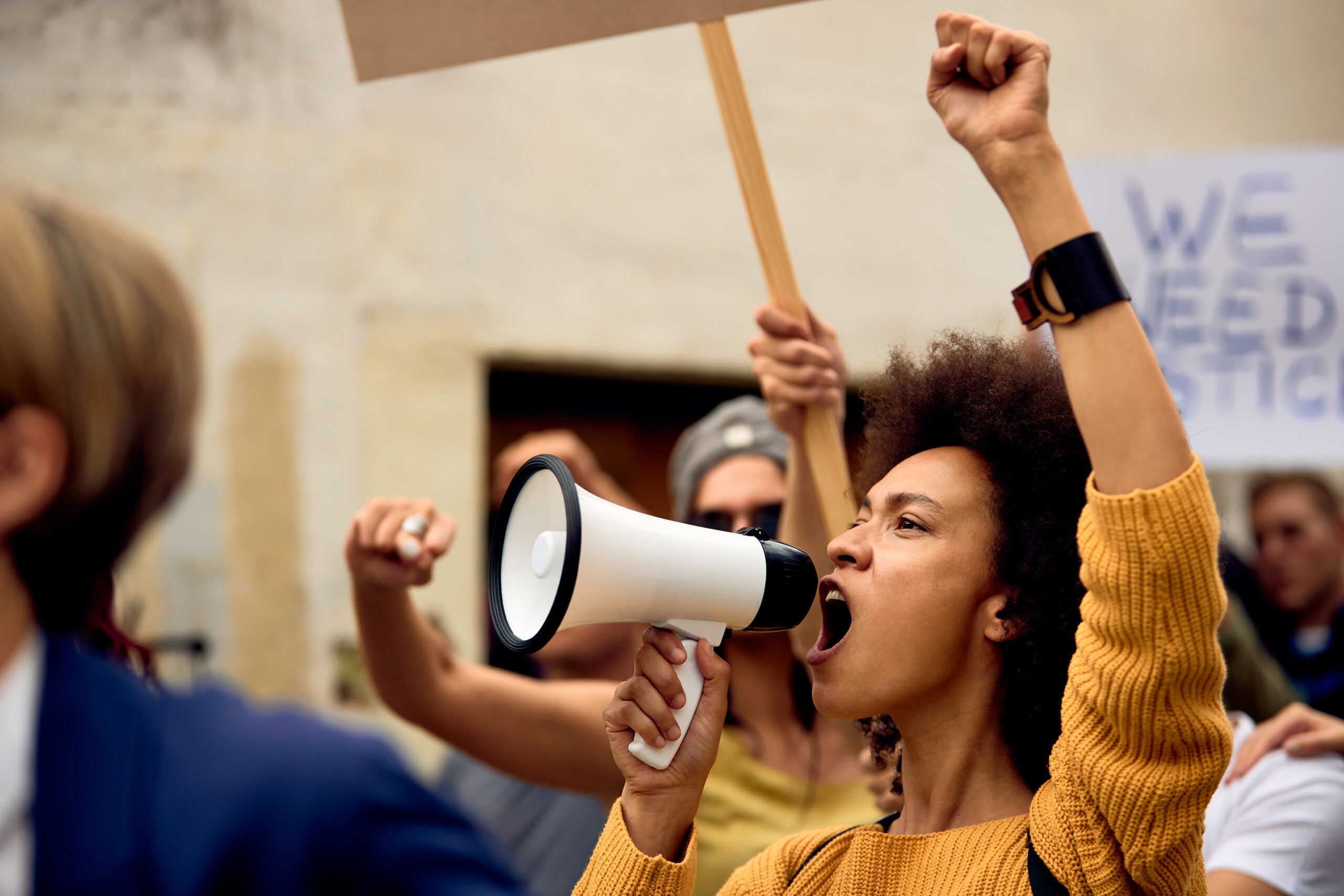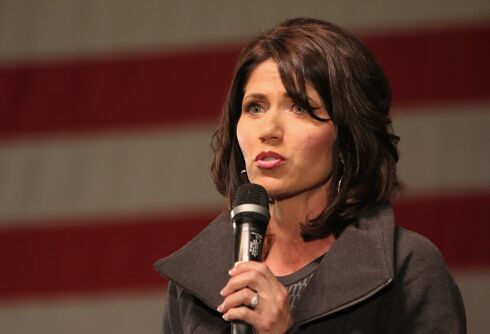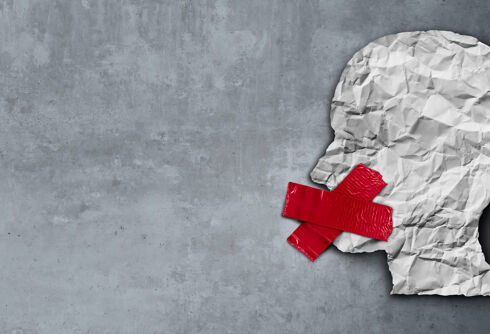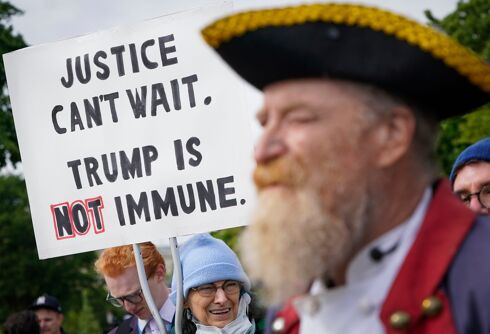“An individual who breaks a law that conscience tells him is unjust, and who willingly accepts the penalty of imprisonment in order to arouse the conscience of the community over its injustice, is in reality expressing the highest respect for the law.” -Dr. Rev. Martin Luther King Jr.
“Congress shall make no law respecting an establishment of religion, or prohibiting the free exercise thereof; or abridging the freedom of speech, or of the press; or the right of the people peaceably to assemble, and to petition the Government for a redress of grievances.” -First Amendment of the United States Constitution
Related:
Trump uses Jews to advance his own agenda. His antisemitism is a clear & present danger.
When anyone uses an already marginalized group to advance their own agendas by tokenizing or feigning support, that itself is an act of oppression.
As an undergraduate, I attended San José State University from 1966-1969, as well as in 1970 as a graduate student. At the time, the school had a relatively progressive administration. We had freedom of political speech, we organized and staffed informational tables throughout the campus, and we had access to university facilities to hold our meetings and rallies.
Dive deeper every day
Join our newsletter for thought-provoking commentary that goes beyond the surface of LGBTQ+ issues
In fact, I was a chief organizer of a rally in support of our university president against criticism coming from some of the more conservative members of the state university board who considered the president too “tolerant” of campus anti-war and anti-racism protests.
I was a member of the Students for a Democratic Society organization. Under the direction of then-Governor Ronald Reagan, the university administration rejected our requests to bring to campus a few members of the Black Panther Party from Oakland to give a presentation. The school used the excuse that their presence could possibly turn violent.
We resisted the administration’s attempts to silence the group and deny us our constitutional First Amendment right to free speech. We brought members of the Black Panther Party to the campus to join us in an unofficial educational rally, which drew hundreds of students, and incidentally, no violence.
Schools are microcosms of larger society. When students say “we will collectively take a stand,” they are, at least symbolically, lodging their vote against what they believe to be an unjustifiable policy on the part of their government. They are declaring their opposition to politics as usual.
Let us remember that three young people helped set the stage for the relative political freedoms youth enjoy today.
The United States Supreme Court handed down a landmark freedom of speech case for students on February 24, 1969. It involved two Des Moines, Iowa high school students, John Tinker, 15, and Christopher Eckhardt, 16, as well as Tinker’s 13-year-old sister, Mary Beth Tinker, a Des Moines junior high school student.
In December 1965, John, Christopher, and Mary Beth attended a meeting with a group of adults and other students in Des Moines at the Eckhardt’s home. The purpose of the meeting was to come up with strategies whereby they could publicize their objections to the U.S. invasion in Vietnam. They came up with an idea to express their support for a truce between the warring parties by wearing black armbands during the holiday season and by fasting on December 16 and New Year’s Eve.
Meeting participants had previously engaged in non-violent activities to work toward ending the war, and the students decided to join the program. When Des Moines school district officials learned of the proposed activity, they adopted and distributed a policy stating that any student found wearing a black armband and failing to remove it on request would be suspended from school and allowed to return only without the armband.
John, Christopher, and Mary Beth wore black armbands to school in violation of the policy, and school officials sent them home. Their parents then petitioned the United States District Court to issue an injunction to school officials to prevent them from disciplining the students. The court dismissed the complaint, arguing that the school district had the right to take action to prevent breaches of school discipline (a.k.a., “decorum”).
On appeal to the Supreme Court, the justices ruled in favor of the students and against the school district by stating that the wearing of armbands for the purpose of expressing views is considered a symbolic action that is “closely akin to ‘pure speech’” and well within the Free Speech clause of the First Amendment and the Due Process Clause of the 14th Amendment. In addition, the Court found school officials failed to prove that wearing the armbands would substantially disrupt school discipline.
Speaking for the 7-2 majority in the case, Justice Abe Fortas wrote: “In the absence of a specific showing of constitutionally valid reasons to regulate their speech, students are entitled to freedom of expression of their views.”
This case would have implications for numerous cases that followed.
Our society is constructed in such a way as to deny a voice to young people in the decision-making process in the affairs of state. Young people do not hold powerful positions in the executive suites in business and industry, in media outlets, or in the halls of Congress. Their strength, however, exists when they take collective action. It is then government leaders begin to listen.
In their collective strength, young people can and have changed the world for the betterment of all.
A faculty committee was appointed in February 1967 by University of Chicago President George W. Beadle under the chair of Harry Kalven, Jr., legal scholar and member of the University of Chicago Law School faculty.
The Kalen Committee was charged with preparing “a statement on the University’s role in political and social action.” The resulting Kalven Report affirms the University’s commitment to the academic freedom of faculty and students while also insisting on institutional neutrality on political and social issues.
“The instrument of dissent and criticism is the individual faculty member or the individual student,” stated the Report. “The university is the home and sponsor of critics; it is not itself the critic. It is, to go back once again to the classic phrase, a community of scholars.”
The report continued: “To perform its mission in the society, a university must sustain an extraordinary environment of freedom of inquiry and maintain an independence from political fashions, passions, and pressures. A university, if it is to be true to its faith in intellectual inquiry, must embrace, be hospitable to, and encourage the widest diversity of views within its own community.”
There is a virtually endless list of ways to engage in humane forms of civil disobedience to call attention to one’s plight, to attract allies, to end oppression, and to establish true justice and equity.
We witnessed the outpouring of protest from hundreds of thousands of residents, Jewish and Arab, over the last few months against the proposed judicial takeover oby Israel’s far-right government.
People have conducted perennial protests over the years of what they see as the establishment of illegal so-called “settlements” on the territories, especially on the West Bank of the Jordan River and parts of East Jerusalem, that Israel took following the 1967 Six-Day War against neighboring armies.
On October 27 of this year, 57 pro-Palestinian demonstrators on my campus at the University of Massachusetts Amherst were arrested by campus police for trespassing during a sit-in protest at the Whitmore Administration building outside University Chancellor Javier Reyes’ office.
Protesters had vowed not to leave the building until the university met its demands: That the university cut any ties with companies that manufacture weapons, like Raytheon, and to “condemn the Israeli massacre of Palestinians and condemn the blockade on Gaza.” When the building closed at 6 p.m., 57 protestors stayed inside, and over the next five hours, University Police arrested them for trespassing.
Police handcuffed them with zip ties behind their backs and then loaded the protesters into a van and drove them to the campus police station, where many waited in a holding cell until early Thursday morning.
By 7 a.m., all students had been released. Many were scheduled to be arraigned on Thursday, November 2 at Eastern Hampshire District Court in Belchertown. All pleaded not guilty to trespassing. Their pretrial dates have been set for December, though the exact day is still to be determined.
Protestors did not engage in violence against any person or against property. No one charged any student with committing a hate crime in words or actions.
They advanced their constitutional rights of “freedom of speech, or of the press; or the right of the people peaceably to assemble, and to petition the Government for a redress of grievances.”
The charge of “trespassing” on a campus many of the students consider their part-time home seems weak at best.
Since protesters have already suffered many of the consequences for engaging in civil disobedience, at this point, all charges must be dropped and their criminal records in this event expunged. Their chances for obtaining future employment must not be jeopardized. Employers, as we have seen, have been denying job opportunities to students for participating in pro-Palestinian rallies on their college and university campuses.
Instead, whether one agrees or disagrees with their cause, we owe these young people our support for their political and social engagement to challenge the status quo in keeping our democracy vibrant.
For in the timeless and poignant words of Edmund Burke: “The only thing necessary for evil to triumph in the world is when good men do nothing.”
















Righteous protest is what keeps democracy vibrant. Those who take a stand deserve our thanks.